
Museums can play a role in destigmatizing addiction disorder.
This article originally appeared in Museum magazine’s May/June 2024 issue, a benefit of AAM membership.
What inspires a complete stranger to engage in the destigmatization of addiction disorder with paint, embroidery, glue, and drawing amid hundreds of other strangers? It is safe to assume that the majority of the attendees at the John Michael Kohler Arts Center (JMKAC) Midsummer Festival of the Arts in Sheboygan, Wisconsin, did not wake up that July morning last year planning to contemplate the social ramifications of addiction disorder. Yet, we welcomed over 700 participants into the art-making tent throughout the two-day festival. We greeted visitors with these words:
Welcome to the Remember Love Recovery Project. We are named for this design. [At this point, we handed out stickers and flyers with the design, here on p. 39.] It says, “Remember Love.” The design was created by Patty Bode’s son, Ryan. Tragically, his life ended due to an accidental heroin overdose and now the Remember Love Recovery Project is using art and education to foster human connection to destigmatize addiction disorder, so people get the help they need. We invite you to make Recovery Flags, into which you may pour compassion, hopes, concerns, wishes, questions, care, and your own inspiration. Use images, words, or abstraction to paint, glue, and draw with all the free materials provided here. You may take your flag home with you, or you may donate it to our collection, which we hope to bring to the National Mall in Washington, DC, within the next two years to help raise national awareness about the need to address substance use disorder in the US.

It is remarkable that hundreds of people, who likely came to the festival to enjoy a sunny summer day with live music, food trucks, and shopping at the artisans’ booths, chose to enter our tent, visit the Lighthouse resources, and sit down and immerse themselves in the goal of destigmatizing addiction disorder. Many stayed for hours working on their flags.
Museums are typically not therapeutic or clinical sites. But museum spaces can be used to connect with the recovery community, including people who are on a recovery journey, those working in clinical care facilities, and families and friends affected by loved ones’ substance use disorder. Many museums are prioritizing inclusivity and community education, and using their space to destigmatize addiction disorder aligns with those goals. Here, we share our story of a partnership among a museum, a community arts activist-educator, and centers of recovery health services that illustrates one model that has yielded success.
Museums as Third Spaces
Though each museum has a unique mission and vision, all seek to facilitate human connection. The JMKAC was motivated to align with Remember Love Recovery Project’s mission due to current tragedies: the Centers for Disease Control and Prevention reports more than 110,000 overdose deaths in the US in each of the past three years (2021–2023). Fentanyl overdose is the leading cause of death for Americans ages 18–45.
Do museums turn away from these issues or attempt to broaden perspectives and promote social action? Should museum spaces be used to destigmatize addiction disorder and support the recovery community? When US society is reeling from more than 110,000 overdose deaths per year, the tragedy extends beyond the individuals lost, affecting their loved ones and caregivers. Our shared humanity is diminished. Our commitment to expanding our understanding of the human condition urges us to act.
Large community events like JMKAC’s Midsummer Festival of the Arts provide a unique opportunity to challenge the norms of museum education. It is common museum practice to separate difficult and potentially controversial current events from programming for multigenerational audiences. Museums delicately balance multiple community needs while ensuring groups with young children feel welcome in gallery spaces. These are essential objectives for building new audiences and captivating children’s attention. However, to grow a museum’s education possibilities, we must view the museum as a third space in the community rather than a strictly cultural destination.
This goal does not negate the need for museum literacy skills; rather, it adds a layer of community engagement where possible. At a summer festival, visitors connect with local artists, listen to music, enjoy food together, and relax outdoors. These elements break down typical museum barriers and signal to visitors who may not think of the museum as a space that affirms that they are seen and welcome. For visitors who already feel comfortable in museum spaces, such events can emphasize that this is a space to learn about and support our community together. Authentic interactions that connect the audience with meaning-making can cultivate that third space of human connection.

From Concept to Action
In February 2023, when Xoe Fiss was the education program director at JMKAC, the institution screened the documentary Love in the Time of Fentanyl, directed by Colin Askey. Fiss attended the screening with her partner, Ben, who is in recovery and pursuing a career in public health and addiction support services. After the film, staff from Lighthouse Recovery Community Center facilitated a Narcan training.
Fiss’s personal connection and newfound understanding about supporting individuals in recovery prompted her to consider how a museum can serve the recovery community by incorporating awareness of addiction disorder into programming for all visitors. The idea continued to percolate when she attended the National Art Education Association conference in New York in April 2023. There she attended Patty Bode’s session about the Remember Love Recovery Project, which she founded to raise awareness, organize activism, and provide accurate information related to addiction disorder and recovery through arts and education. Bode’s project was the call to action Fiss was seeking, and she eagerly returned to Sheboygan to start supporting the recovery community in future programs.
During an initial call with Bode, the JMKAC programming team brainstormed how Bode’s work could connect to the art center’s future initiatives. Nothing concrete was decided on the call, but a few weeks later, Fiss serendipitously started a conversation with a participant at a drop-in workshop at JMKAC. The visitor had been at the program for about an hour, longer than the 30 minutes most other participants were spending there. The programming team at JMKAC practices relationship building with visitors who drop in to its community studio—every conversation is an opportunity to understand how to better serve visitors. Fiss asked her if she’d been to the museum before. She said she hadn’t, and Fiss asked what made her want to attend this program today.

The visitor shared that she was a patient in the day program for addiction disorder at a local mental health services organization. She found it difficult to find weekend activities in Wisconsin that did not revolve around drinking alcohol, and she was interested in free activities to which she could invite a friend to help hold her accountable. This reconfirmed Fiss’s certainty that she needed to advocate for the Remember Love Recovery Project message and art-making at a large JMKAC program—the Midsummer Festival of the Arts.
At the festival, the community workshop tent provided space for about 80 people to comfortably sit together and work on recovery flags. Some individuals chose to create flags on their own, while many multigenerational groups collaborated. We provided materials, such as paint, assorted fabric, markers, and stitching materials. When people finished their flags, Bode invited them to take their flag home, share it with someone in their life, or donate it to the Remember Love Recovery Project collection, with the hope of one day displaying them on the National Mall. Those who chose to leave their flag could clip it to clotheslines along the walls of the tent. We were struck by how grateful people were to have an opportunity to help destigmatize addiction disorder.
Rogers Behavioral Health, a mental health and addiction treatment center, stayed in contact with the Remember Love Recovery Project in the months after JMKAC brought Bode to Sheboygan for the event. The two groups are planning more art-making workshops in the future.
JMKAC continues public programming for social change. For example, in February, it hosted a screening of the 2013 documentary The Anonymous People and subsequent discussion and activities about changing the addiction conversation from problems to solutions. This event was presented in partnership with Lighthouse Recovery Community Center, Mental Health America Lakeshore, and MC Koke, a local advocate for the recovery community.
How might your museum foster healing and wellbeing in your community? We hope that this example of leveraging one museum’s influence through a public summer event and meaningful community partnerships may provide a model for your community programming.
SIDEBAR
Community Partnership Tips
Museums seeking to destigmatize addiction disorder and support the recovery community must collaborate with local professionals with therapeutic and clinical expertise. In our case, we partnered with the recovery community to learn from those on the recovery journey and their care providers. Starting from the beginning with all collaborators, we recommend these actions:
- Reach out to organizations serving the recovery community and learn about their needs, struggles, and capacity to partner or contribute. Find out how the museum can be supportive.
- Dedicate your efforts to a mutually beneficial mindset. Affirm the knowledge and expertise of all partners in order to learn from and with them.
- Center reciprocal goals and community needs when suggesting possible program concepts and dates.
- Seek out a community artist who is facilitating a road-tested project that you can bring to your cultural institution as a starting point.
- Invite all collaborators to a post-event evaluation to reflect on the program’s outcomes, gather feedback, and brainstorm next steps to maintain momentum.
Resources
SAMHSA (Substance Abuse and Mental Health Services Administration) National Helpline: 1-800-662-HELP (4357)
This is a free, confidential, 24/7, 365-day-a-year treatment referral and information service (in English and Spanish) for individuals and families facing mental and/or substance use disorders.
About calling 988
People can call or text 988, or chat at 988lifeline.org, for themselves or if they are worried about a loved one who may need crisis support. 988 offers 24/7 access to trained crisis counselors who can help people experiencing mental-health-related distress.
Arts Strategies for Addressing the Opioid Crisis: Examining the Evidence, Key Findings from a Literature Review and Program Scan on the Arts, Pain Management, and Substance Use Disorder, National Endowment for the Arts, 2020
arts.gov/sites/default/files/Arts-Strategies-Opioid-Crisis.pdf
Love in the Time of Fentanyl, Colin Askey (director), 2023
pbs.org/independentlens/documentaries/love-in-the-time-of-fentanyl/
Remember Love Recovery Project
rememberloverecovery.org
social media: @rememberloverecovery


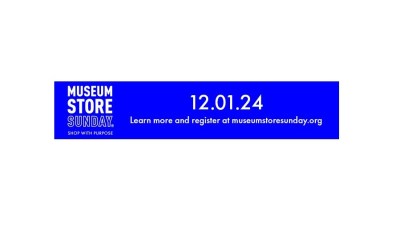
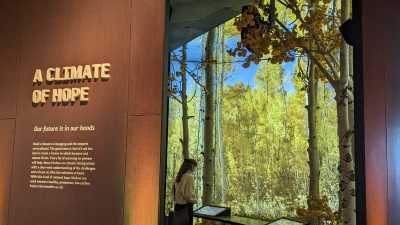

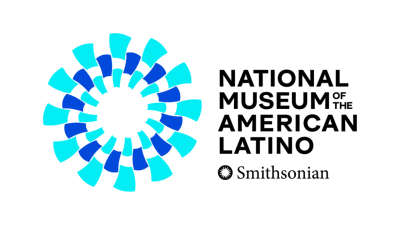
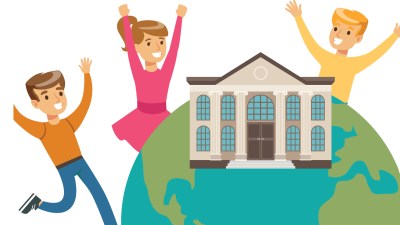
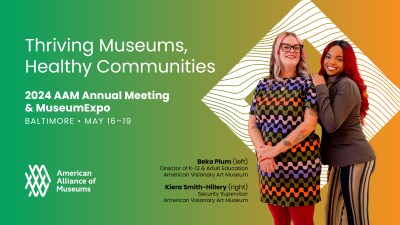
Comments